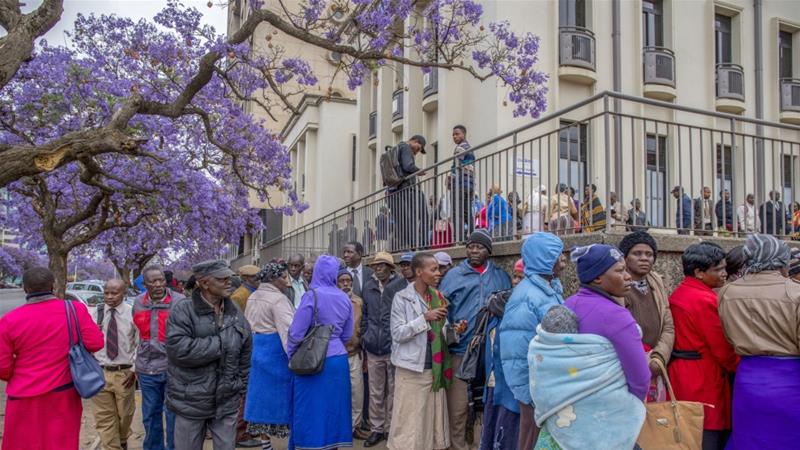Natasha Quiroga, Thang Diep, Liliana Garces, Nicole Gon Ochi, and Alyson Tom (Photo by Renwei Chung)
“My grandfather was a fire and brimstone preacher / But there are things that the homilies and hymns won’t teach you / My mother was a genius / My father commanded respect / When they died they left no instructions / Just a legacy to protect.” Lin-Manuel Miranda (Hamilton)
This week, the National Asian Pacific American Bar Association (NAPABA) hosted their 31st National Convention in Austin, Texas. Over 2,000 members made the pilgrimage to this weekend’s convention, making it the most popular NAPABA meeting to date.
Like in past years, there was a feeling amongst the younger lawyers and law students that we were standing on the shoulders of giants. We felt blessed to have the opportunity to meet so many luminaries in one place. There was also a sense in the room that many veteran lawyers were excited to pass the torch of community building, pro-bono involvement, and trailblazing to greener lawyers. Lawyers are at their best when they are serving, and NAPABA is a community testament to this.

Attendees participate in an interactive admissions simulation (Photo by Renwei Chung)
Today’s morning panel titled, “What’s on Trial at Harvard and UNC? A Discussion on Asian Americans, Affirmative Action, and Discrimination,” hit a chord, and filled up a ballroom with almost 200 attendees. Natasha Quiroga served as the moderator and Thang Diep, Liliana Garces, Nicole Gon Ochi, and Alyson Tom were the featured speakers on the panel. As highlighted on NAPABA’s website, the panel covered:
The contentious Harvard trial on race-conscious admissions thrust questions of Asian American identity, racialization, and political alignment into the national spotlight. The trial is over, but questions remain about the fairness of admissions policies, the current climate on college campuses for students of color, including Asian Americans, and the growing divide within the Asian American community about access to higher education.
In this program, you will engage in an interactive admissions simulation to understand how the admissions process works and how race can factor into decision-making.
After the simulation, the audience will engage in a dialogue with a panel of experts that include a litigator involved in both cases, a student who testified in the Harvard trial, a former admission officer, and a social scientist and legal scholar who has filed numerous legal briefs on behalf of the education community in affirmative action cases. Discussion topics will include: (1) the legal, evidentiary, and remedial distinctions between intentional discrimination and the constitutionality of a race-conscious admissions policy; (2) the social science evidence on the impact of race-conscious admissions policies on campus climate; and (3) the politicization of the affirmative action debate in the Asian American community and its implications.
I’ve covered affirmative action over the last few years in several columns:
- Can We Now Address Legacy Admissions? Or Will We Keep Focusing On Affirmative Action In A Silo?
- First Edward Blum Came For The Voting Rights Act, Now He Aims To Gut Affirmative Action With The Help Of Asian Americans
- As Asian Americans Become More Pivotal In The Affirmative Action Debate, Both Sides Weigh In
- Asian Americans Are Being Used As A Wedge To Advance The Anti-Affirmative Action Agenda
- Affirmative Action Is Here To Stay (For Now); How Will This Benefit The Legal Profession?
- Opponents Of Affirmative Action Will Get Another Bite At The Apple Next SCOTUS Term
- ‘Affirmative Action’ In Law: The Four-Letter Phrase

The panel fields questions from the filled ballroom of attendees (Photo by Renwei Chung)
For the record, everyone in the audience did not share the panelists’ or my viewpoint. It is clear that the growing divide within the Asian American community about access to higher education remains a highly contested issue. Now that I live next door to the University of North Carolina, I can attest that these cases will no doubt affect the campuses at issue, but also their respective holdings, and the appellate rulings, will reverberate throughout student bodies across the nation.
In the afternoon, Google sponsored the NAPABA Lunch Plenary titled, “Fred Korematsu’s Fight for Justice: A Reenactment of Korematsu v. United States.” The feature speakers included: Vincent T. Chang, Edward Chen, Yang Chen, Denny Chin, Francis H. Chin, Kathy Hirata Chin, Anna Mercado Clark, Andrew T. Hahn, Sr., Karen Korematsu, Lauren U.Y. Lee, Dale Minami, Concepcion Montoya, Peggy Ann Nagae, Karen Narasaki, Clara J. Ohr, Marilyn Hall Patel, Don K. Tamaki, Vinoo Varghese, Ona T. Wang, David Weinberg, and Jessica C. Wong.
As highlighted in the program:
Over seventy-five years ago, on February 19, 1942, President Franklin D. Roosevelt issued Executive Order 9066, uprooting some 120,000 Japanese-Americans—two-thirds of them American citizens—from their homes on the West Coast and forcing them into concentration camps.
Although the rest of his family reported as ordered, Fred Korematsu refused to go. He was arrested, and convicted of violating the Executive Order and related military proclamations. He appealed his conviction first to the Ninth Circuit and then to the Supreme Court. The Supreme Court affirmed his conviction as well as the convictions of Minoru Yasui and Gordon Hirabayashi, upholding the Executive Order.
In 1983, some forty years later, the federal court in San Francisco vacated Korematsu’s conviction after evidence was uncovered showing that the government had suppressed evidence that undermined its assertions in the cases before the Supreme Court that the relocation and incarceration of Japanese Americans during World War II without individualized consideration of loyalty was a matter of military necessity. Fred Korematsu spent the rest of his life teaching the lessons of his case. As he put it, “No one should ever be locked away simply because they share the same race, ethnicity, or religion as a spy or terrorist.”
This program will tell the story of Fred Korematsu and his fight for justice through narration, reenactment of court proceedings, and historic documents and photographs. This is the eleventh of a series of historic reenactments presented by the Asian American Bar Association of New York.
It was quite fitting Google supported the lunch plenary as it had honored the late Korematsu for his 98th birthday in its Google Doodle two years ago. At last year’s Asian Pacific Interest Section of the State Bar of Texas (APIS) “Our Time is Now” Conference, Karen Korematsu, Founder and Executive Director of the Fred T. Korematsu Institute, reminded the audience of how far we’ve come and implored us to become more involved in our communities — to make a difference and to keep the ball rolling forward. The other featured speaker, Andrew C. Kim, questioned the Conference’s theme. He stated, “We are proclaiming ‘our time is now,’ but is it? I’m not so sure. I do know that if we do not speak up when there is injustice and we just keep our heads down — to go along to get along, like most of our parents taught us — there will be no change. We must act if indeed our time is now.”
I was thrilled NAPABA honored the late Korematsu and brought him to the forefront of the consciousness of the first time NAPABA attendees and young Asian Pacific American attorneys in the audience. As I have mentioned in a past ATL column titled “In Honor Of Fred Korematsu Day, Let’s Remember The Legacies We Have All Inherited And Our Duty To Fight Injustice,” along with his courage and sacrifices, Korematsu should be honored nationally for his contribution to our country’s history of civil rights. In The Dallas Morning News, I recently wrote that for Thanksgiving, I will be thankful for many things, but I will particularly be grateful for those who have fought for our civil rights. Freedom isn’t free, and many people have made the ultimate sacrifice so we could be where we are today. Texas should honor Fred Korematsu for his contribution to our country’s history of civil rights.
In the afternoon, I had the opportunity to join Congresswoman Eddie Bernice Johnson for her Asian American Advisory Council conference. Johnson spoke about the importance of the 2020 Census, need for diverse candidates as the lines get redrawn, upcoming HB-1 visa bills, Trump impeachment inquiry process, and our government’s needed role in the rising tensions between China and Hong Kong. I appreciated her insights regarding the history of the United States and Taiwan. But above else, I continue to be amazed by Johnson’s institutional knowledge and bias for action.

ATL Diversity Columnist Renwei Chung, General Counsel Al Li, and Director, Sr. Counsel Kevin Chung catch up at the NAPABA Welcome Reception (Photo by Renwei Chung)
Just as the panelists for the affirmative action conversation implored the audience, when judging someone it is important to be mindful and conscious of their history and understand them in a holistic context — we must be mindful of the legacies we have all inherited and conscious of the shoulders we stand on. On Tuesday of this week, my late father would’ve turned 75 years old. I’m reminded of the many lessons he taught me when I attend a NAPABA conference.
Whether its affirmative action, human trafficking, digital media for children, secondary trauma in the courtroom, female representation in corporate Silicon Valley, healthcare fraud, digital health, body cameras, smart contracts and blockchain, artificial intelligence and employment discrimination, or the crisis at the border, NAPABA continues to host programs that tackle the toughest issues of our day.

A San Diego NAPABA 2016 millennial reunion photo (Photo by Renwei Chung)
Beyond crafting the annual programing, NAPABA helps to cement lifelong bonds for the participants who make the pilgrimage to its annual convention every year. The affinity groups, galas, and conferences serve as a community replenishment for the mind, body, and soul of NAPABA members and attendees.
Fellow millennials, and now Gen Z members, I encourage you to put some money aside every paycheck and dedicate these funds to visiting interesting people, attending affinity events, and going “all in” on your respective pursuits. And don’t ever become too busy to return your parents’ phone calls. They deserve to hear from you more often. In fact, call them right now and thank them for everything they’ve done for you. One day, you may not get the chance to do this.
Renwei Chung is the Diversity Columnist at Above the Law. You can contact Renwei by email at projectrenwei@gmail.com, follow him on Twitter (@renweichung), or connect with him on LinkedIn.























